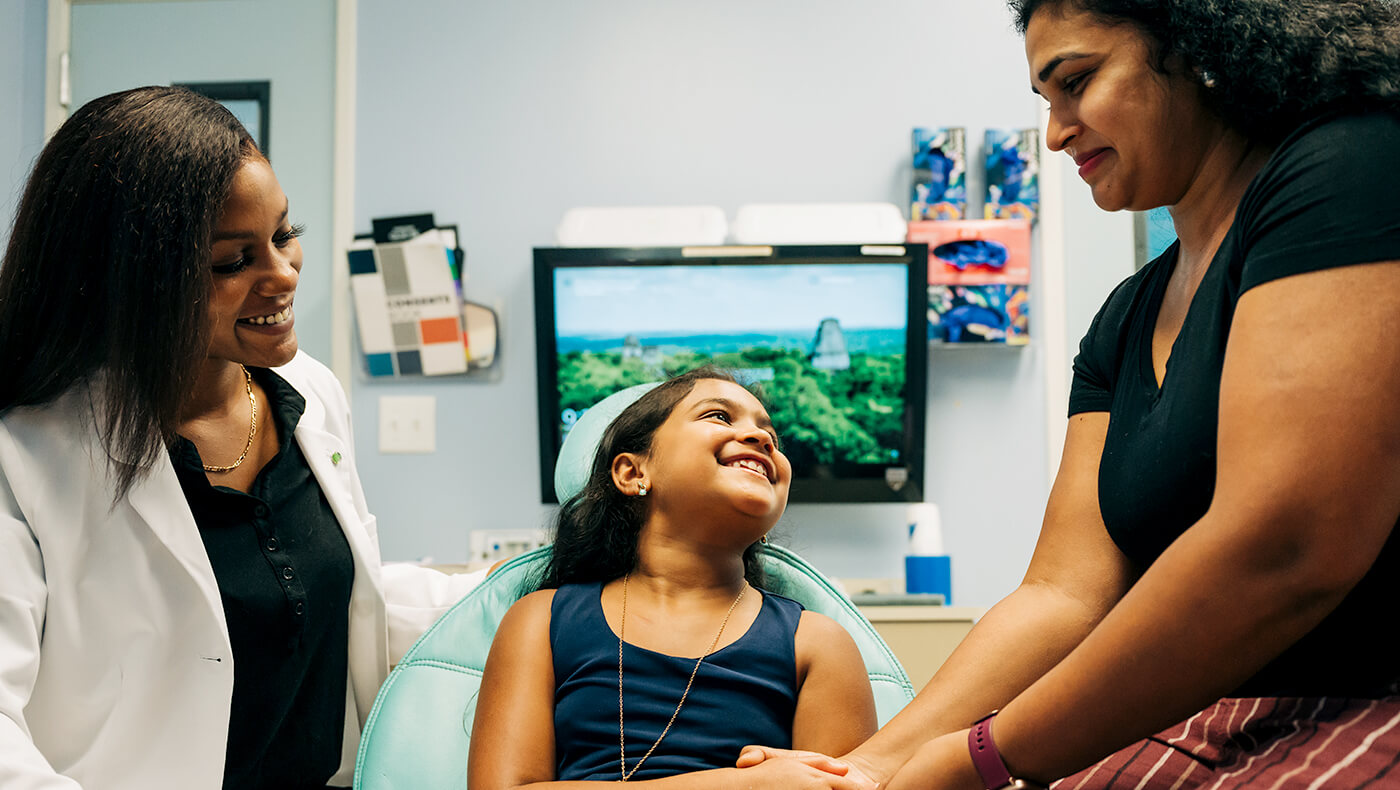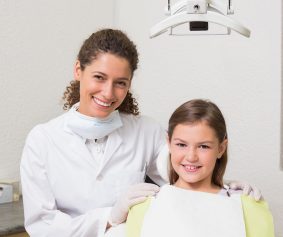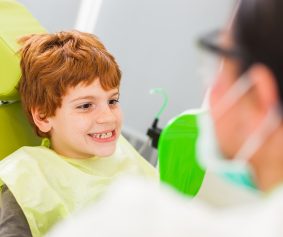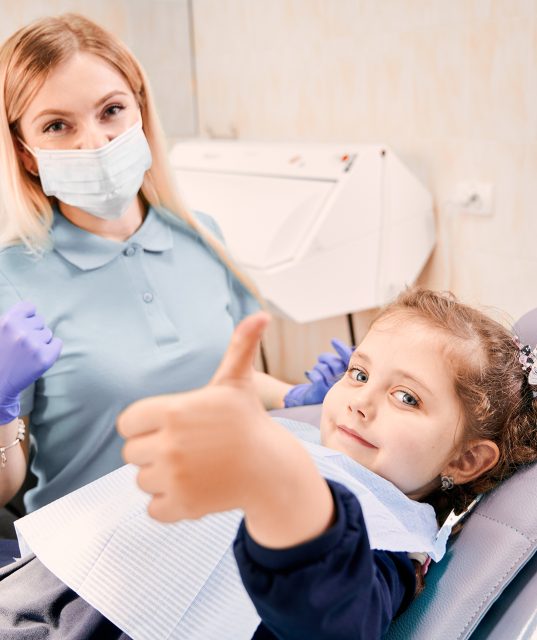Edgewood Sedation Center
Specializes in creating a comfortable, compassionate, and positive experience for young patients with dental treatment.


Your child’s comfort, safety and dental experience are the most important to our team. Sometimes children need extra help completing their dental needs. Sedation dentistry with general anesthesia provides a safe way for your child to feel comfortable and at ease for necessary treatment. Typically, a dentist will recommend general anesthesia due to the young age of a patient, high anxiety and lack of cooperation, or the amount of treatment required. Treatment performed under general anesthesia allows for a pain-free and atraumatic dental visit and can allow your dentist to perform all the required treatments in just one safe session.
With general anesthesia your child will be unconscious during treatment, meaning they will be put to sleep. Therefore, your child will be unaware of the dental treatment that is being performed in their mouth. This deeper sedation route helps create an environment where treatment is completed in a safe, pain-free, and non-traumatizing setting. A pediatric anesthesiologist performs the general anesthesia. This kind of anesthesia is the same kind of sedation that is used for the removal of tonsils or placement of ear tubes.
There are several benefits to sedation dentistry, including:

Dental sedation eliminates the pain response during dental treatment. Children who experience pain during dental treatment are more prone to move around and be less compliant during the procedure.

When kids are anxious about their upcoming appointment, they are more to misbehave or not cooperate with the dentist. However, if they are sedated and comfortable, treatment success is increased. The clinician desires to perform the best work in the least amount of time.

With proper monitoring, you can rest assured your child is safe while under sedation. In addition, with the increased anesthesia training, general anesthesia in the dental clinic has become a safe and cost-effective mechanism for delivering dental care to healthy children. Patient vitals, including blood oxygen levels, blood pressure, pulse and carbon dioxide levels, are routinely monitored during the procedure.

Anxiety and fear cause stress, which can increase heart rate and breathing. During dental procedures, this stress response can make the child tense up, cry, and even run away. For children with dental anxiety, sedation can provide most patients with little or no memory of the dental procedure itself and may erase any fearful feelings that may have been experienced. Not remembering the dental procedure can also be helpful in overcoming dental phobias.
At the Edgewood Surgery Center, we offer GENERAL ANESTHESIA to ensure a safe and successful procedure.
Minimal Sedation will help with relaxation and your child will be awake, offered in the dental office with your child’s primary dentist.
Moderate Sedation will make your child feel groggy and drowsy, and may or may not fall asleep, still able to respond to painful stimuli.
Deep Sedation with General Anesthesia will render your child fully unconscious or “asleep” feeling no pain and having little to no memory of the procedure. Vitals will be monitored by Board Certified Pediatric Anesthesiologist and Register Nurses.
